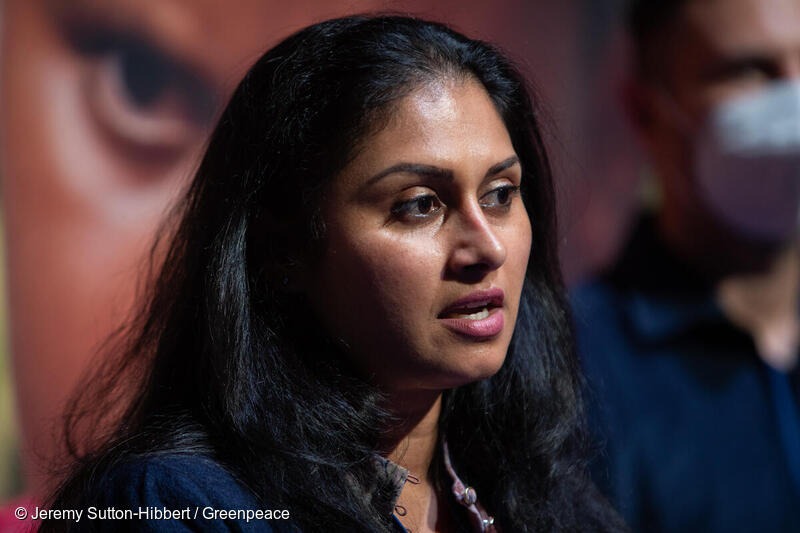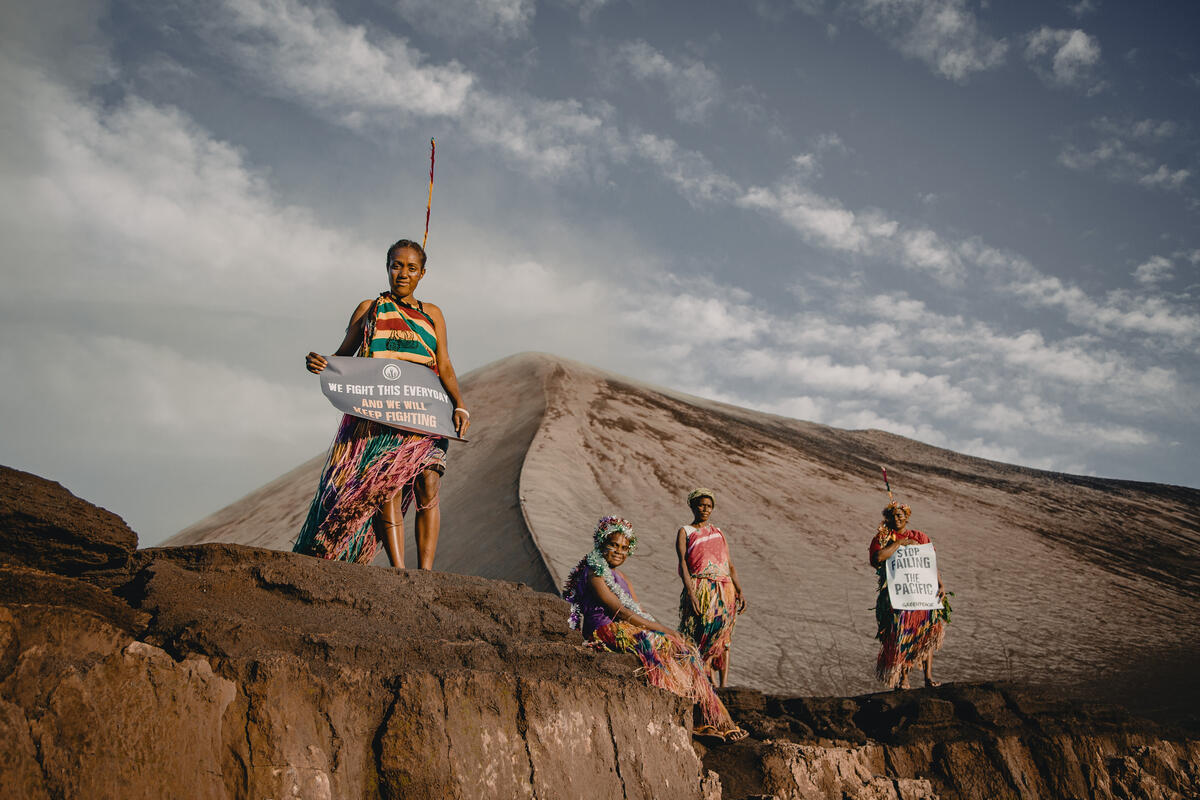The solutions to climate change will come from the bottom-up – from the community-owned solutions of the margins and from the Global South.
Climate change is not gender-neutral. As Mary Robinson has said “Climate change is a man made crisis that needs a feminist solution”.
On gender day at COP26 it’s important to remember that patriarchy is entrenched in colonialism, militarism, and neoliberalism. These ideologies underpin the systems of injustice that exploit women’s labour, particularly unpaid care work, deepen poverty, discrimination and violence.
Attending the conference, US Speaker of the House Nancy Pelosi said that women faced particular dangers in a warming world.
She described climate change as “the existential threat of our time”, adding that “it’s a threat multiplier that amplifies and accelerates existing inequities.”

Launch of Greenpeace Australia Pacific’s new report ‘Pacific Bully and international outcast: How Australia’s climate policies isolate it from the Pacific and the world’, at the 26th UN Climate Change Conference, known as COP26, in Glasgow, Scotland, on 3 November 2021. Speakers were Greenpeace Australia board member and Fijian international human rights lawyer Kavita Naidu (pictured), Greenpeace International Director Jennifer Morgan and the General Secretary at the Pacific Conference of Churches, Rev. James Bhagwan.
“Eighty percent of people displaced by climate change globally are women,” she said
The climate crisis impacts women disproportionately because of existing gender inequality.
And it is unjust to keep burdening women to be resilient when in many parts of the Global South, including the Pacific, the damage is increasingly becoming irreversible and permanent.
Those on the frontlines, facing the worst impacts of climate change are indigenous, black, colored, queer, women living with disabilities, refugees and migrants.
Despite their vulnerability, these women are leading climate solutions that protect the environment and uplift and sustain the livelihoods of everyone in their communities.

During the opening of the COP26, 200 women gathered at Mt Yasur, an active volcano on the island of Tanna in Vanuatu. The women hold signs, calling for climate justice in the Pacific.
Their valuable contributions are being “showcased” at side events at COP26 rather than shaping non-market mechanisms, those solutions that are not driven by profit, extraction production and waste.
These women need direct access to climate finance in order to promote locally led and community-owned solutions to build their resilience for the impacts they are facing now and to prepare for those in future.
Major emitters like Australia, the US, EU and UK owe a historical debt and the Global South must be paid reparations for the damage they have suffered.
This COP26 is critical for delivering ambitions that would limit temperature rise to less than 1.5 degrees. A goal, which is still within reach but requires actions inside the negotiating rooms to match the ambitious rhetoric outside.

Launch of Greenpeace Australia PacificÕs new report ‘Pacific Bully and international outcast: How Australia’s climate policies isolate it from the Pacific and the world’, at the 26th UN Climate Change Conference, known as COP26, in Glasgow, Scotland, on 3 November 2021. Speakers were Greenpeace Australia board member and Fijian international human rights lawyer Kavita Naidu (2nd right), Greenpeace International Director Jennifer Morgan (2nd left) and the General Secretary at the Pacific Conference of Churches, Rev. James Bhagwan (right).
Everyday, climate change is causing women to lose their food crops, their access to water, their rivers, forests, oceans and homes.
The longer our leaders delay in committing climate finance for adaptation and loss and damage, the more women will be pushed into deeper poverty and displaced.
The removal of gender, human rights and environmental safeguards will cost women their lives. Fundamentally, the climate crisis is about the lives of people.
It is about human rights. It is about not allowing governments to outsource their responsibilities to private corporations, their lobbyists and enormous delegations who seek to reverse over 25 years of work that has gone into the Paris Agreement to prevent climate chaos.

